Managing editor Ross W. Muir was introduced to biblical storytelling when John Epp, a member of the Network of Biblical Storytellers Canada and Toronto United Mennonite Church, visited First Mennonite Church in Kitchener, Ont., last spring. Following that encounter, the two chatted in person and online over the summer and into the fall.
Ross W. Muir: What is biblical storytelling?
John Epp: Biblical storytelling is an act of translation. It takes the “paper Bible” and returns it to its native medium of speech. The Bible was speech before it became paper. The Hebrew God is a speaking God, Jesus is portrayed as a powerful oral communicator in all four gospels, and the Bible in oral culture was understood to be a speaking book. The Bible began as a speech event, and parchment was a way of preserving speech itself, knowing it would be sounded out loud again in the company of God’s gathered people. The Bible is a living voice, and biblical storytelling sets that voice free.
Biblical storytelling is an act of interpretation. When I am telling a biblical story, I’m not just giving you the “facts.” It is a bold act of interpretation that uses the primal tools of the voice, the imagination, our whole being—body, mind and soul—to exegete the biblical passages.
Biblical storytelling is much more than a performance, it is a communal act of worship where story, storyteller and congregation come together to create a unique opportunity for the Spirit to speak to the church. Tim Reimer, the pastor at Danforth Mennonite Church in Toronto, calls biblical storytelling, “the great exegetical experiment.” It is communal exegesis.
It is a prophetic act. It reclaims the prophetic role in the church. Prophets are the keepers of the dream, the vision. Storytellers hold up that vision for all to see.
RWM: What are some ways biblical storytelling is used in worship: As an alternative to a sermon? As a way to dramatize a sermon or the theme of a particular service?
JE: Most of my tellings are used as a replacement of the sermon time. However, some of the most exciting uses have been communal tellings, where a group of people tell a larger section of Scripture (Matthew 8 to10, for example). There are many ways to use biblical storytelling:
• Scripture reading
Scripture reading can sometimes feel like one of the dullest moments in our services, but a well-prepared reading is like living bread. The Greek word for “read” is “to re-know” or “to re-live.” Let’s learn to read from the heart, with intelligence and authenticity.
The steps to preparing a good reading are very similar to telling by heart. In fact, the readers on our Scripture Reader Team occasionally find themselves going “off paper” very naturally.
Begin by forming a Scripture reader group at your church. A good resource is Devote Yourself to the Public Reading of Scripture by Jeffery D. Arthurs.
• Children’s stories
There are so many short, exquisitely crafted stories in the Bible. These can be learned by heart with a few links to the lives of the children. My wife learned the story of Mary’s Easter encounter with the gardener. She told the story with the big Bible from the communion table on her lap. The story was simple, short and very engaging. Kids go away wondering what else might be in that big mysterious book.
The “Godly Play” movement has it right: Children already have a spiritual life; all they need is a language to express it. Why not tell them the church’s primal stories?
• Words of ritual
There are words we use regularly in church life that could be learned by heart. How wonderful it is when a pastor has learned the communion text by heart or the baby dedication. Then they are free to speak directly to the people involved. Speech birthed from the heart has a power that looking down at paper can’t communicate.
RWM: How did you get involved in biblical storytelling and in the Network of Biblical Storytellers Canada?
JE: It all began with my disappointment with the Bible. As a young adult, there was great joy in discovering who Jesus was through fellowship, preaching and music, but my early attempts at reading the Bible on my own were far from joyful. I knew it was a treasure, but apart from a few precious verses I experienced a sense of futility in trying to read it.
I loved how pastors and teachers could draw things out, but I just couldn’t. Bible college and seminary gave me some excellent study tools, but it wasn’t until I began learning the Bible by heart, and speaking it out loud in church, that the true power of the Bible revealed itself to me.
Then the Bible took on an authority and intimacy that was more, much more, than study or reading. Finally, the Bible was linked with the kind of transforming power I knew was always there. It has been a 30-year journey since my original disappointment. Everything has now finally come together: academic study, Scripture and the power of speech.
RWM: What are your favourite biblical stories? And why?
JE: Another long journey for me has been to find my voice. I come from a long line of engineers, so I am gifted mechanically, but I was far less confident with my voice, yet there was an ache to speak.
During a course at AMBS [Anabaptist Mennonite Biblical Seminary] we were required to learn a Bible story by heart. When the hat came round to me, I picked Mark 7:31-37, “the healing of the deaf mute!” I have many favourites, but this one is close to my heart.
Biblical storytelling has been a healing of my voice. I have learned that God hides God’s greatest gifts in our deepest fears. I also feel particularly drawn to Paul’s letters and the Hebrew prophets because of their face-to-face immediacy.
RWM: How do you find biblical storytelling received in the churches where you are invited to bring your gift, especially Mennonite churches?
JE: Somewhat mixed in the beginning, just because I was less confident and more dramatic than I am now. But for the most part, it is received very well. But I also wonder whether there is an unnamed ambivalence deep within our Mennonite psyche. I was told once, “We live the Bible. We don’t talk about it. It is arrogant to talk about the Bible.” I wonder if deep within our psyche we are still “the quiet of the land.”
Another factor that explains the hesitation is that many Mennonite churches still live in a deeply literate culture where the Bible is perceived as something to study and read privately, in silence. We have consigned the public voicing of the Bible to the same place we used to consign women! So for various reasons there is some unease about hearing the Bible boldly told out loud and in public.
Yet when we hear it, for a brief moment, it touches something deep. It awakens something. People are delightfully disorientated by what they thought they knew so well! Someone said recently, “It violated my expectations!” For a brief moment the words of the Bible are filled with an unexpected fullness and our expectations are “violated.”
I haven’t actually been hauled out of church to the nearest cliff, so apparently I still have work to do!
RWM: Is “performance” an accurate description of what you do? Is biblical storytelling different from drama or readers theatre? If so, how?
JE: People are sometimes taken aback by the direct nature of storytelling: “It gave me no option to tune out.” Or they call it, “in-your-face.” Perhaps you could say storytelling is less sophisticated and more primal, more face-to-face than “performance.”
The word “performance” doesn’t capture the participatory nature of storytelling. In biblical storytelling, the audience can’t sit back and be spectators. The congregation is faced directly, not only by the storyteller, but also by the direct speech of the gospels, or Paul, or the prophets.
And in turn this face-to-face speech calls forth our deep human need to respond with speech, and herein lies one of the big differences. On one occasion I was delightfully caught off guard in the middle of telling Ephesians Chapter 2 when a lady sitting in the congregation piped up and said, “You go, Paul!”
On another occasion in an Anglican church one woman said, “We need to respond! We can’t be expected to just sit there in silence, with Paul just doing his thing, and going to the next place!”
So storytelling provokes and invites a playful back and forth where the “script” is in flux, even to the point of being composed during the telling. We are all on stage with storytelling. I build in formal responses like sung refrains, confessions and open prayers, but folks also need permission for spontaneous interaction. I am always surprised at how much congregations love and need participation. Our forbears called this the “Amen bench.”
RWM: Dennis Dewey writes, “Biblical storytelling takes many forms: from paraphrase to first-person monologue, to midrashic expansion, to contemporization.” Which of these methods have you used and with which biblical texts?
JE: Dennis Dewey is well known in the biblical storytelling world as both teller and teacher. He would see these various forms as one step removed from the intimacy and intensity of the Bible’s language.
I once did a first-person monologue of Matthew’s encounter of the risen Christ and it was a whole lot of fun, but they got more John Epp than the power of Matthew’s Gospel! I want people to have a more direct encounter with the living voice of Scripture.
I wonder if there is an assumption behind these forms that the Bible all by itself is dull and needs to be spiced up with drama. On one occasion, a very urbane, unchurched young man from my workplace came to hear me tell Corinthians. Afterwards he said, “Hey, if that’s what’s in the Bible, I might be interested!”
The voiced Bible is a captivating experience, and mastering its sophisticated oral artistry is both a rewarding and demanding art form in and of itself.
RWM: Are there any biblical passages —like the Books of the Law, for example—that don’t work as biblical storytelling?
JE: All Scripture was meant to be interpreted with the human voice, including the Law. In ancient Israel, the Law was read out loud and echoed between two mountains (Deuteronomy 27:12-13). That must have had a profound effect on people.
When I tell Matthew’s genealogy, for instance, it has a “wow factor,” but people hear much more than they expected. People experience the genealogy for the first time as a vision of God at work in history through the oddest and most surprising people. To study or read the genealogy in silence will not have the same effect. All Scripture was meant to be interpreted with voice; that’s why I prefer the term, “sounding the Scriptures.”
RWM: Biblical storytelling is often described as a spiritual discipline. What does that entail?
JE: Story learning is a discipline that entails the work of imagining down-to-earth people interacting with each other, something Walter Brueggemann calls, “the scandal of the concrete.”
Moving from the conceptual to the slow and cumbersome world of story is a discipline. It requires time and intentionality, the same thing as prayer. While I am working on a story, there is sometimes the niggling voice, “You’re wasting your time.” But I know that the precious time I pour out on this work becomes “pure nard” when spoken out loud in commu-nity. When my mind is full of troubling thoughts I go through a story and feel deeply centred again; that too is “pure nard.”
RWM: Growing up in the 1960s, I was taught Bible stories long before I knew or understood anything about theology. As I grew older—and hopefully more mature—and theology was introduced in Sunday school, having a grounding in the stories made theology somehow easier to grasp. Today, biblical literacy—especially of the narrative flow from Genesis to Revelation—seems to be on the wane in many churches. What, if anything, can biblical storytelling do to address this apparent problem?
JE: How odd that I didn’t begin to grasp the long, heart-breaking, ultimately joy-filled journey of the whole biblical narrative until I began storytelling. And note, that was after Bible college and a seminary degree!
The fact that the Bible even has an overall “narrative flow” is not conscious for many of us who are used to approaching the Bible either devotionally, liturgically or, for that matter, in a scholarly way. All of us need to be awakened to the great narrative arc in the Bible, and it can begin by hearing a single story or passage told out loud. Once the living speech of Scripture breaks into our consciousness, that small narrative experience will naturally lead us to the deep overall flow of the biblical narrative. Narrative leads to narrative.
My recent project is called “The Hebrew Odyssey: God’s journey into the human heart.” It seeks to capture the great narrative arc that shows how God, creation, Israel, Jesus and the church all move together as one story, all in one 90-minute telling. One young woman who heard it recently said, “That’s better than a movie!”
Our passion for Scripture will only be awakened by the living voice. I think that the Bible only becomes Scripture once it is returned to its native medium of sound via the voice. When people hear the voice of Scripture, it ignites a flame.
RWM: Dewey talks about three cultures—oral, where everybody knows each other and holds common biological origins; literate, where culture is oriented around shared beliefs; and post-literate, where culture transcends political, tribal and national boundaries—and suggests that biblical storytellers “live and move and have their being” in the latter. How does that work when you go into churches that “live and move and have their being” in one or both of the first two cultures?
JE: Marshall McLuhan has taught us that the electronic age has radically transformed every culture that has come in contact with it. Electronic culture has ushered in what scholars call a “second orality.” The power of literate left-brain thinking has been broken at a popular level, so even congregations steeped in their books are open to the oral art of Scripture-telling.
However, I still come across people who will open their Bibles to see how close my telling is to the words on the paper. That is a deeply literate response! Others have said, “Hmm, I don’t know if I trust this. It seems manipulative to me.”
For some, there is a deep mistrust of the emotional response to the story. They would rather not share how the telling affected them personally, so they ask questions like, “How long did it take to learn that?” or, “What translation did you use?” All these are typical literate responses.
On the other hand, when I am telling in churches that have more of an oral core, they tend to open their ears and inner imagination, and to see and feel the story on a personal level. After one telling of Ephesians we had a Q&A, and the people poured out their fears and pains. They spoke openly about their faith journeys. Their honesty touched me deeply. One young man said, “We have heard from the Spirit today and from this day on we must make some changes.” So he spoke in a deeply communal sense. These are typical oral responses.
But things are never clear-cut. We all “live and move and have our being” in all three cultures: oral, literate and electronic. The lines are not well defined. The electronic revolution has broken down the supremacy of literate culture and returned the whole globe to a more face-to-face tribal society that has re-awoken the art of storytelling.
RWM: Anything else you’d like to address that we haven’t already covered?
JE: Someone recently said to me, “This is deep fun. This liberates our Bible, and once the Bible is liberated, so are God’s people.” The benefits for congregational life are enormous. Wouldn’t it be great if every congregation had its own resident storyteller, someone who is supported and trained to explore and develop this calling in the congregation? How we would set the transforming power of Scripture free!
I would say, “Come and see!” Every fall, the Canadian Festival of Biblical Storytelling puts on a great event. Come and hear master storytellers, take home a few tools and enter the deep narrative of the Bible.
For reflection and group discussion, go to the discussion questions related to this article.
Visit www.biblicalstorytellingcan.ca for more information about the Network of Biblical Storytellers Canada and its biblical storytelling festival.
Ross W. Muir is managing editor of Canadian Mennonite.
--Posted Dec. 24, 2013

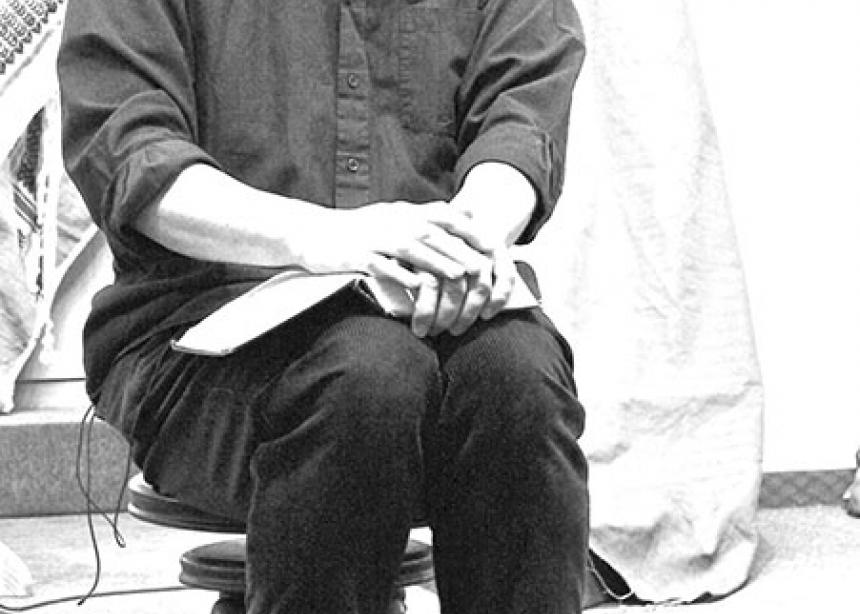
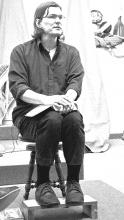
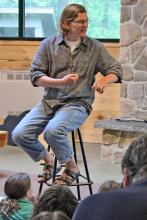
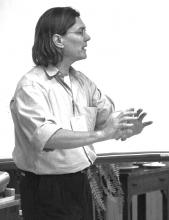
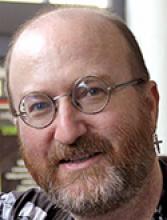
Add new comment
Canadian Mennonite invites comments and encourages constructive discussion about our content. Actual full names (first and last) are required. Comments are moderated and may be edited. They will not appear online until approved and will be posted during business hours. Some comments may be reproduced in print.